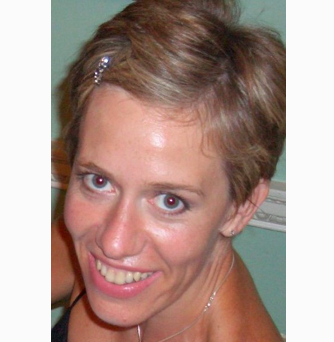The Event
On 22nd May, we held an exclusive event for Hire Space Professional clients, inviting them for breakfast and a roundtable discussion, alongside speakers Kate Kassar, Director of Beyond Events and Frank Dias, Communications Business Partner at Lloyd's.
This session explored the challenges that event organisers face when communicating with stakeholders throughout the planning process and effective ways to tackle these to increase efficiency, best promote their skills, and achieve more influence on project outcomes.
The Venue
Our host for the morning was The Clubhouse, Bank, a stylish space in the heart of The City, only a minute's walk from Bank underground station. Located on the 7th and 8th floors of One Angel Court, the members club has nine state-of-the-art meeting and events space, including its own private roof terrace and roof garden with panoramic views over the City.
Event organisers are famed for their strong communication skills, often working with multiple external stakeholders, but just as vital is the internal communications across event teams and the wider business, which play a huge role in how quickly and efficiently decisions are made on operations and logistics.
Key Takeaways
1. Work Backwards
It can be more beneficial to work backwards from an event brief. Find out what the objectives of the event are from the outset. Try to get involved at the strategy stage and brainstorm with all the teams involved (sales/marketing/decision-makers), this will help to minimise conflicting or unclear ideas of what the event should look like when it gets to the logistics stage.
When the event organiser knows what the goal of the event is they can then advise on how this can be best achieved through design and logistics and justify it based on the strategic outcomes. This is where the event professional adds real value.
2. Find Your Cheerleaders
Getting in front of decision-makers both externally and internally was a challenge across the board. Build relationships and find your 'cheerleaders' with people who have influence and will fight your corner. Take time to (even if it's just 10 minutes) to meet for a coffee, ask their advice and most of all, ask great questions that show you understand the business, the industry and where you can add value (your personal brand is important too). This process might take a little time but those relationships will prove invaluable in the long term.
3. Put Your Audience at the Centre of Communications
Think about who you are talking to and what motivates them, work out what is important to them and put this in the middle of your communications and change your language to fit. This is more likely to get a response and provoke someone into action. If numbers and stats appeal to your audience then frame your communications through those, others respond to emotive language; find out what makes people tick.
Keep communications concise, pick up the phone where you can and practice short emails with clear subject lines. Frank advised using square brackets to indicate the action that needs to be taken from that email, bring your action point to the top and use bullet points, don't pad!
4. Be Assertive
Events involve a lot of stakeholders and decisions that need to be made throughout the project. People are often more concerned with their own role and own deadlines so assertiveness is key in pressing for urgency. Bring the importance of the deadline forward to them in a way that shows the implications for the rest of the project and wider business if they are not met.
Communication skills are important here, as above, use language that appeals to that person and frame your request in a way that impacts their role or objectives. Perhaps suggest that for the project to go ahead, the decision will be made by a certain date by you as the event manager, if you do not hear otherwise. There does need to be a certain amount of trust in your decision making, but as the event manager, you have the expertise to back this up and it’s why you’ve been brought in to do the job.
5. Recognise and Promote Your Value
Use a bit of personal PR to show the value of events management, hold 'lunch & learns' to show what is involved in the process and how it impacts the wider company, and always debrief after an event and ask for feedback on how to do it better.
The Speakers
Kate Kassar, Director, Beyond Events: Kate set up BEYOND in 2004, an event agency specialising in project management and consultancy to deliver “intelligent events”. Project management: the “intelligent event” not only delivers a seamless project, it meets marketing objectives and hits return on investment targets.
Frank Dias, Communications Business Partner, Lloyd's: Frank Dias is an internal communications professional with more than 10 years’ experience working in the charity, financial services and insurance sectors, for brands such as Cancer Research UK, Grant Thornton and Lloyd’s. He specialises in communicating change through storytelling, developing visual leadership, and connecting people socially.
This series of educational talks and discussions draw on the content from the EventLAB programme and are offered exclusively to our Hire Space Professional clients. They are designed to help event professionals enhance their skills and knowledge through actionable takeaways.
You can find out more about Hire Space Professional and gaining access to exclusive events here.
To find out more about attending EventLAB's 2 day educational programme on October 23-24 at the Barbican, please enquire here.
Hire Space Professional clients get 20% off the EventLAB ticket price! Find out more here.





